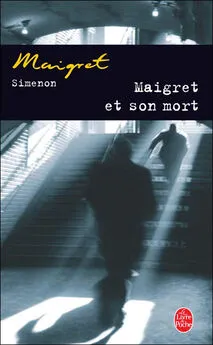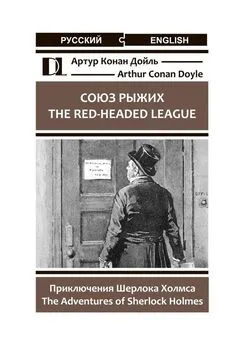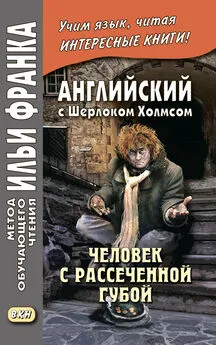John Lescroart - Son of Holmes
- Название:Son of Holmes
- Автор:
- Жанр:
- Издательство:New American Library
- Год:2003
- ISBN:9780451208750
- Рейтинг:
- Избранное:Добавить в избранное
-
Отзывы:
-
Ваша оценка:
John Lescroart - Son of Holmes краткое содержание
John Lescroart offers an engrossing historical mystery that takes us to a small French town in the dark days of World War I-where the rumor is that Auguste Lupa is the son of the greatest detective of all time. And his mysterious legacy may come to light as he attempts to solve the baffling murder of an intelligence agent...
Son of Holmes - читать онлайн бесплатно полную версию (весь текст целиком)
Интервал:
Закладка:
When he’d left, Lupa excused himself and left me sitting wondering what he planned to do. I heard him moving about in the adjoining room, evidently rearranging things in some way. In a short while he reappeared, carrying two beers in each hand. He set them on his desk and opened two, offering one to me without a word. Then he sat with his eyes closed and breathed deeply for what seemed an hour but was actually probably less than a minute. Finally he sat up, opened his eyes, and glanced at the beer glass, presumably to see that the foam had settled adequately, and drank. When he put the glass down, it was empty, and he immediately reached for another beer. He looked at me after pouring.
“So.”
“If you don’t mind my asking, what are you planning to do? You can’t stay here, and every minute we sit here threatens you more. Why don’t we just go over to my place, or at least through the tunnel? Here you are too vulnerable.”
“Nonsense. What I did in the outer room just then will prevent any interference from the police. The huge tapestries covering the other walls? Well, for such an eventuality as this, I’ve another on hand. I’ve simply covered the door to the office and the wall surrounding it. No one will suspect there is a room there.”
“But if they search, it’s transparent.”
“Why would they search? If they’re capable of thinking me guilty of Marcel’s death, they are no danger to me. They will look in the rooms that remain, which are certainly ample for one man living alone. They won’t suspect a hidden room. Why should there be one? Monsieur Vernet will tell them he fired me because of my papers, and Charles will corroborate. Then, of course, there will be a new chef, newly hired, and living in these quarters.”
“I suppose that would be . . .”
“Exactly. Fritz.” He drank more beer, and I joined him.
“Did it occur to you that I might not approve of this? That perhaps Fritz is my private chef and of some worth to me, both personally and professionally?”
“Certainly, my dear Jules.” He smiled. “That’s why I did-n’t want to discuss any of this with you before sending Charles on his errand. I didn’t want to waste the time. You see, there really isn’t much choice. I can be very effective here, and I intend to remain. Come. It won’t be for long. Enjoy your beer.”
I sat and thought in silence. He was right, but it was aggravating. What was I to do with Fritz gone? Suddenly I realized what had begun to nag me.
“I gather, then, that you’ve cleared Fritz? You might have mentioned it to me.”
He did not respond in any way.
“Well?” I said.
He sighed. “There are simply some matters that I can’t disclose at this time, even to you, Jules.”
“That’s ridiculous!”
“Patently, it is not.”
“Might I ask why?”
He searched for the least objectionable way to phrase it. “You are a valuable ally, Jules, and becoming a good friend, but there is a certain ingenuousness in your character that I can turn to my advantage. I must ask you to trust me in this.”
“I find it highly insulting.”
He got up from the desk and crossed over to me, placing his hand on my shoulder. “It is not that, I assure you.” He leaned his huge bulk back against the desk. “My father, Jules, had a companion for many years—a very good man of impeccable character and great bravery. But his goodness was so ingrained, his honesty so natural, that he was absolutely incapable of dissembling. My father knew this, of course, and occasionally had to leave this man in the dark, or in a few cases actually mislead him, so that he might not unwittingly tip a winning hand.”
Again, his hand came to rest on my shoulder. “Jules, forgive me, but you are not an actor. You are an agent, and a valuable man of action, but if you were closing in on Marcel’s murderer, I doubt if you could altogether suppress your feelings until the optimum moment. And that, in this case, is essential.”
“But Fritz . . . ?” I began.
“For the time being, let Fritz be my problem. I will say this much: if he is our man, what better place to monitor his activities than under my own roof?”
I was not completely happy or convinced by his rationale, but I could see that his mind was made up. He went back around his desk and sat, and we waited for the others to return. Lupa opened the last beer, poured it for himself, and had nearly finished when Vernet entered.
He was of average height but distinguished by a full red beard and, incongruously, piercing dark eyes. It was an odd combination, which his dress reinforced. He wore an English derby hat and a large plaid overcoat, which, when removed, gave way to more conventional attire—a dark suit and tie. The color scheme of his face became even more bizarre when he took off the hat, revealing a head of gray hair. He entered by the tunnel, so of course we’d been warned of his entrance.
“See here, Auguste, what’s this about closing down the restaurant? I realize that ‘M’ and Altamont have asked me to cooperate in every way I could, but we’re beginning to lose customers, what with Charles’s cooking and your irregular hours. What’s the explanation this time?”
Perfectly unruffled, Lupa introduced us.
“Now, sit down, monsieur. I am sorry, but it’s really unavoidable. We should be open for business again within the hour, but in the meantime I am going to need your help. Will you have some beer? Cognac?”
The owner sat and nodded. “Courvoisier, s’il vous plait .” To my surprise, Lupa attended him. When they had both been seated, Lupa began again.
“We have a real problem, though we could possibly have foreseen it, given the way the police have handled everything so far. They’ve reached the inescapable conclusion that I am Monsieur Routier’s murderer. Monsieur Giraud has just given me that report, and the police are supposedly to be here this evening to arrest me. Unfortunately, that would be most inconvenient, so I’ve covered over the door to the office and decided to remain here until I’ve settled this matter. Let it look to the police as if I’ve run. That’s fine; in fact, it suits my purposes, since now the heat will be off the actual murderer. They’ll of course question you as to my whereabouts, and you should tell them that you dismissed me immediately upon learning that my papers were forged and you haven’t seen me since.”
“Fine,” said Vernet with impatience, pulling at his beard, “but who’s to be the new chef? How did I find him? And, above all, can he cook?”
“On the last point, you may rest assured. His name is Fritz Benet, and he would be worthy to be my own chef, were I ever in a position to be able to afford one. Maybe after the war . . . but that’s irrelevant. He’s been the chef for Monsieur Giraud for quite some time. However, for these purposes Giraud fired him because he suspected him of complicity with Routier’s death.”
“Now, wait a minute, Auguste . . .” I began, but he waved me down.
“That puts him in no danger. Believe me, it’s perfectly safe. The police have checked him thoroughly.”
“But why should I suspect him?”
“He poured the beer.” He shrugged. “It doesn’t have to make sense to us. It merely has to be plausible to the police. They’ve apparently settled on me. That you might suspect Fritz will have no bearing.”
Vernet sipped at his cognac. “So I will once again have a restaurant.”
“Barring difficulties.”
That seemed to palliate him. His face relaxed and he looked at me. “I asked for this when I decided to accommodate our friend here. At least it’s not dull.”
Lupa picked up the book he’d been reading when I entered and, without so much as a “by your leave,” became engrossed again. Vernet and I discussed Fritz’s merits until the alarm sounded again. Lupa distractedly pushed the button, and I, seeing that he was taking no precautions, got up and walked into the tunnel, my pistol ready. After a few moments, I heard Fritz’s voice and returned to my chair.
When they entered, Fritz crossed over to me.
“You’re all right?” he asked.
“Perfectly.”
“What’s the trouble?”
Lupa spoke. “Hello, Fritz. Please take a seat.”
Within a quarter of an hour, the thing had been settled, and Fritz was in the kitchen, getting acquainted. Vernet waited for the police in the bar upstairs, and Charles, somewhat miffed at his demotion, nevertheless was assisting Fritz whenever necessary. Lupa and I sat in the office, discussing the war.
“I still say that it will be over soon. Now that Italy has joined us . . .”
Lupa shook his head. “Jules, you are deluded. This war will continue for years.”
“Years? Don’t be ridiculous!”
“Mark my words. You talk of settling down and growing your vineyards in peace. In two years, you’ll be wondering if you’ll be able to hold on to your land. The government will need every man, every resource, and it will take them. Your hobbies, which you so treasure, and rightly so, will fade to insignificance. There will be no good food available. Everyone will join in the effort. Watkins has brought me the news that they’ll soon be hiring women at the munitions factories.”
“No!”
“Yes, indeed. Every man will be fighting. Factory workers, sick men, even older men will be forced to the front, and it will be to no avail. The war will drag on. Keep in mind, Jules, it’s only been ten months. There’s still adventure and idealism in the thought of war. Give the world two or three or five years of it, and you’ll see everything you know change. After this case is over, I’m quitting myself, though my uncle will disapprove. I may have to go to America to escape this war, though I fear that even the Americans and their pacifist Wilson will have to join. Luckily for France, they’ll support her.”
“Not exactly a Utopian, are you?”
“No, a realist. They don’t go well together.”
Knowing that cynicism and youth were constant companions, I was not unduly depressed by his opinions, though it saddened me to see such an intelligent man obviously unaware of the military realities. Germany was strong, but we’d been beaten in 1871 and had learned from it. The Kaiser was no Bismarck. That was the point to remember. No German army would ever march under the Arch de Triomphe again.
“You French,” he continued, “with your elan vital ! It isn’t will that wins a war, it’s firepower. This war won’t be settled by men being pushed against other men on the fronts but in the countries themselves—where every effort of the economy, the government, the citizenry itself will play a part. And it will be at least two years before that fact is realized. No, Jules. Prepare yourself for a long siege.”
“And you,” I said, “how will you avoid conscription?” He sat back. “I am willing to die, I suppose, for freedom, and I am more than willing to devote my talents to serve the Allied cause. But I could never, ever serve on the front as one of the thousands who are important because they are bodies. My ego would never permit it. And honestly, Jules, would yours?”
I looked down at my hands. “I’d rather not serve at the front, if that’s what you mean, but in my case it’s more a question of age than conceit.”
He shrugged. “Call it what you will. Are you getting ready to go?”
I’d gotten up, alerted by noises upstairs. He put his fingers to his lips as he crossed over to me, and together we listened at the door to what sounded like Magiot himself talking to Vernet.
“You expect me to believe that he left here this afternoon and left no hint of where he was going?”
Читать дальшеИнтервал:
Закладка:









